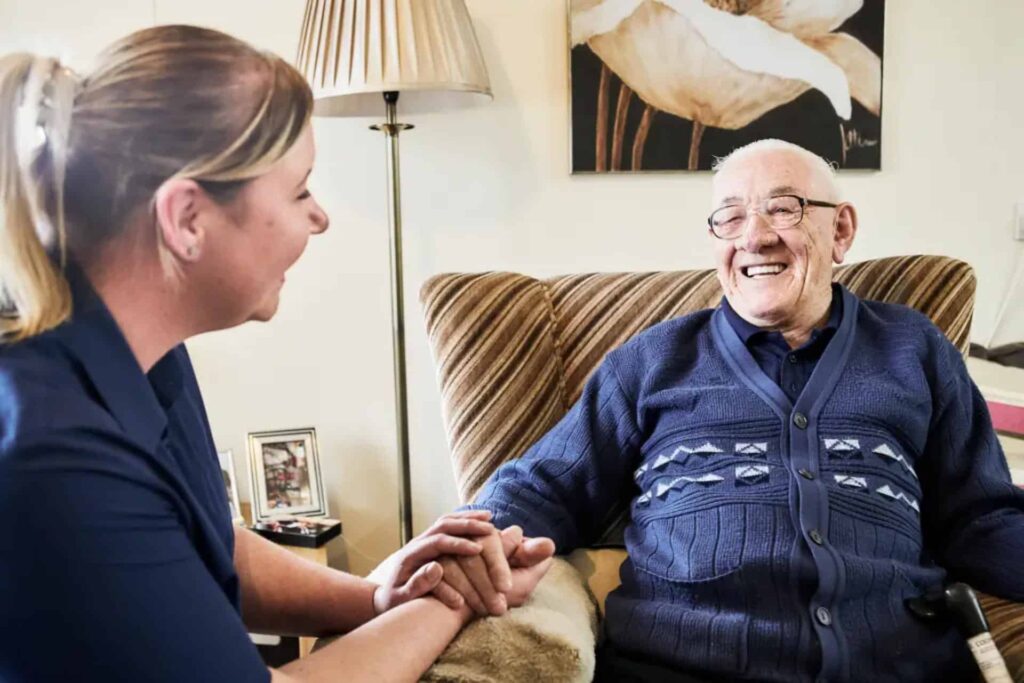Understanding 24/7 Care at Home
24/7 care at home represents a comprehensive approach to providing continuous support and assistance to individuals needing round-the-clock supervision and help. Unlike intermittent home care, which might involve visits at specific times or days, 24/7 care ensures that someone is always present to address needs as they arise. This type of care is crucial for those with severe health conditions, chronic illnesses, or advanced age-related issues that require constant monitoring and assistance. The aim is to provide a stable, familiar environment where individuals can receive tailored care while staying in the comfort of their own home. This constant presence can significantly enhance their quality of life compared to hospital stays or institutional settings. Additionally, the personal touch offered by caregivers familiar with the individual’s preferences and routines plays a vital role in maintaining emotional well-being.
Benefits of 24/7 Care at Home
One of the most significant advantages of 24/7 care at home is the improvement in overall quality of life. Having continuous care means that individuals can benefit from immediate assistance, reducing anxiety and providing a sense of security. This environment supports both mental and emotional health, allowing individuals to remain in a setting that feels comfortable and familiar. Personalised care is another key benefit, as it allows for the development of a care plan that suits the individual’s specific needs and preferences. This tailored approach fosters better relationships between caregivers and recipients, leading to more effective and compassionate care. Moreover, receiving care at home eliminates the stress associated with hospital stays, offering a more peaceful and less disruptive alternative.
Key Components of Effective 24/7 Care
Effective 24/7 care at home hinges on several critical components. Firstly, caregivers must possess the necessary qualifications and training to provide high-quality support. This includes not only medical skills but also training in communication and emotional support. Developing a comprehensive care plan is equally important, as it outlines the specific needs of the individual and how they will be met. This plan should involve input from healthcare professionals and family members to ensure all aspects of care are addressed. Monitoring and communication play crucial roles in maintaining high standards of care. Utilising technology for health monitoring and maintaining regular contact between caregivers, family, and healthcare providers helps ensure that any changes in the individual’s condition are promptly addressed.
Challenges and Solutions in 24/7 Care at Home
While 24/7 care at home offers numerous benefits, it also presents several challenges. One common issue is caregiver fatigue, which can impact the quality of care. Recognising signs of burnout and implementing strategies to support caregivers, such as regular breaks and support networks, is essential. Coordination of care is another challenge, particularly when integrating with other medical services. Ensuring that all aspects of care are well-coordinated helps prevent gaps and maintains a seamless service. Financial considerations also come into play, as 24/7 care can be costly. Exploring various funding options and financial assistance can help manage these expenses and make the care more accessible.
Finding the Right 24/7 Care Service
Choosing the right 24/7 care service involves evaluating several factors to ensure that the care provided meets the highest standards. When assessing potential care providers, it’s crucial to consider their reputation, qualifications, and the quality of their services. Asking the right questions about their experience, training, and approach to care can help in making an informed decision. Ensuring compatibility between the caregiver and the individual is also essential. A good fit involves not just professional qualifications but also personal rapport and trust, which contribute to a positive and effective care experience.
Making the Transition to 24/7 Care at Home
Transitioning to 24/7 care at home requires careful planning and preparation. Modifying the home environment to ensure safety and comfort is a critical step. This may involve installing safety aids, adjusting living spaces, and ensuring that all necessary equipment is in place. Clear communication with the care team about expectations and routines is crucial for a smooth transition. Involving family members in this process helps to create a supportive network and ensures that everyone is on the same page regarding the care plan.
Maintaining and Enhancing the Care Experience
Ongoing evaluation and adjustment are key to maintaining and enhancing the care experience. Regular reviews of the care plan help ensure that it remains aligned with the individual’s evolving needs. Gathering feedback from both caregivers and family members allows for continuous improvement and adaptation of the care plan. Implementing changes based on this feedback ensures that the care remains effective and supportive over time.
By addressing these aspects, 24/7 care at home can offer a high level of comfort, quality of life, and personalised attention, making it an invaluable option for many individuals requiring continuous support.

